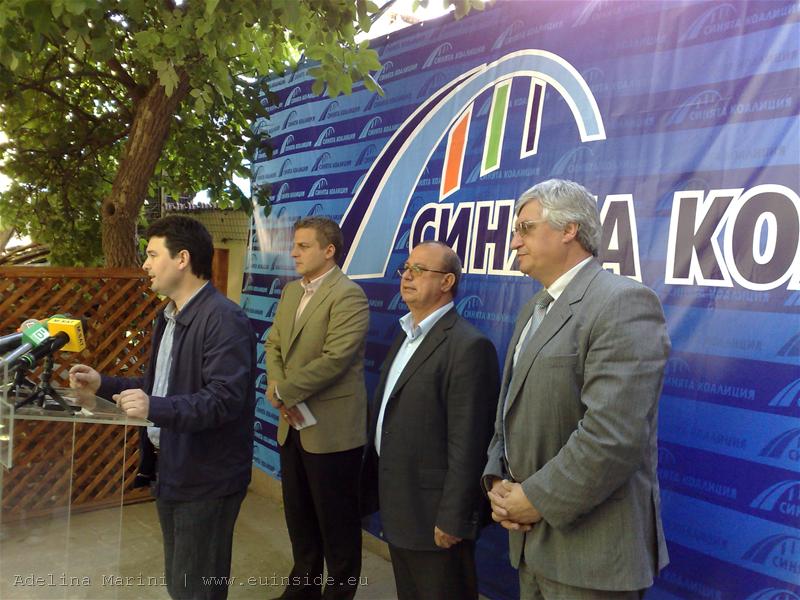30 years later
Adelina Marini, June 7, 2009
 Today's European elections are not the first for Bulgaria but are the first for Bulgaria together with the other member states. And more - 2009 is the 30th anniversary of the first elections for European Parliament. But in 1958 the member states were only 6 and the MEPs were 142. Now we have to elect 736 MEPs, of which 17 are the representatives of Bulgaria, according to the Treaty of Nice. According to the previous treaty of Amsterdam, Bulgaria had 18 deputies which will be recovered with the Lisbon Treaty if the Irish approve it on the second referendum that will be held in the Autumn. Opinion polls show that this time the Treaty will pass smoothly because of the crisis.
Today's European elections are not the first for Bulgaria but are the first for Bulgaria together with the other member states. And more - 2009 is the 30th anniversary of the first elections for European Parliament. But in 1958 the member states were only 6 and the MEPs were 142. Now we have to elect 736 MEPs, of which 17 are the representatives of Bulgaria, according to the Treaty of Nice. According to the previous treaty of Amsterdam, Bulgaria had 18 deputies which will be recovered with the Lisbon Treaty if the Irish approve it on the second referendum that will be held in the Autumn. Opinion polls show that this time the Treaty will pass smoothly because of the crisis.
The European elections have started on the 4th of June but today will be the majority of countries that will vote together with Bulgaria: Austria, Belgium, Germany, Greece, Denmark, Estonia, Spain, Lithuania, Luxembourg, Poland, Portugal, Romania, Slovenia, Hungary, Finland, France and Swede., The Italians will also vote today but for a second consecutive day. 2 days voted in the Czech Republic - on Friday and Saturday.
Germany will have the biggest number of MEPs - 99 and the smallest number will be from Malta - 5. If the Lisbon Treaty comes into force then the Germans will have 96 representatives and Malta - 6. But this will happen on the next European elections as the plans of the European leaders the Treaty to come into force before these elections, failed. The Lisbon treaty foresees an increase of the number of MEPs and decrease of the number of the commissioners.
In the last EP the political groups were 8. The biggest was the EPP-ED (The European peoples Party together with the European Democrats) which had 288 MEPs, followed closely by the PES (Party of the European Socialists) with 217 MEPs and ALDE (Alliance of democrats and liberals in Europe) with 100 representatives. The fourth group was the Union for Europe of nations with 44 deputies, followed by the Greens in a coalition with the European free alliance - 43 members, the European united left-North green left - 41 members, Independence/Democracy - 22 members and 30 independent MEPs. The expectations are that the EPP will again be the biggest group. But it's possible the groups to be less in the next Parliament because the minimum for formation of a political group has been increased from 20 to 25 MEPs.
The elections this year will be much more attractive, unfortunately not for the voters, but for the candidates for several reasons. The first and more idealistic is that the EP already has increased powers and, in fact, is the necessary balance in decision-making in the EU. The second reason is that all MEPs will now have equal salaries which, for a country like Bulgaria, is an enormous sum - 7,665 euro. But relax! This is paid by us, but by all of us, not by the Bulgarian budget only. The salaries of the MEPS will now be paid by the budget of the EU, formed by the contributions of all member states. Before the wages of the MEPs were paid by member states for their representatives.
 Federica Mogherini | © Council of the EU
Federica Mogherini | © Council of the EU | © Council of the EU
| © Council of the EU Luis De Guindos | © Council of the EU
Luis De Guindos | © Council of the EU | © Adelina Marini | www.euinside.eu
| © Adelina Marini | www.euinside.eu